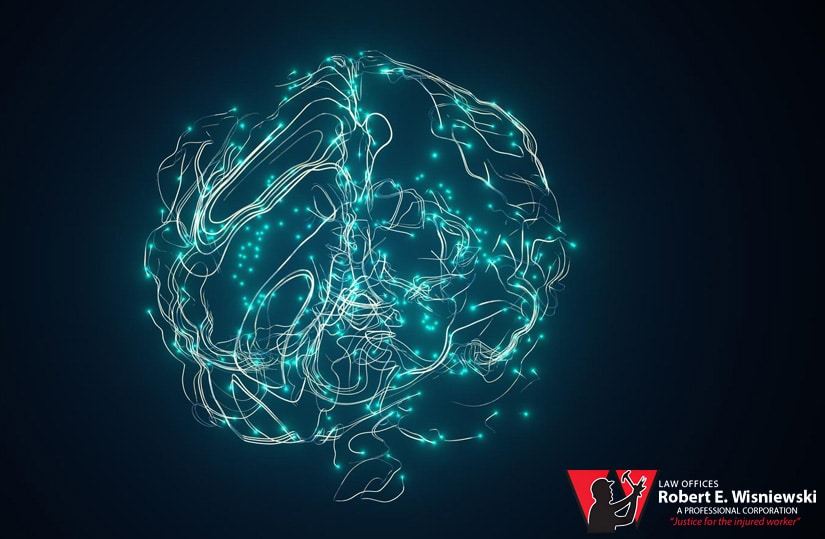Can You File for Workers’ Comp if You Have a Seizure at Work?
A seizure is an electrical disturbance in the brain that can cause changes in a person’s feelings, physical movements and consciousness.
Different types of seizures exhibit a range of symptoms and severity. The different types are distinguished according to the brain location where they begin and how far they spread.
The cause of seizures is often unknown. However, they are more common after a stroke, head injury, meningitis or other illness.

Seizure statistics
According to the Epilepsy Foundation, more than 3 million people in the United States suffer from epilepsy. Ten percent of the U.S. population will have a seizure during their lifetime, whether or not it’s caused by epilepsy.
There is no cure for epilepsy, but seizure disorders are effectively treated by antiepileptic drugs that prevent seizures in most cases.
Types of seizures
Seizures are either focal or generalized depending on how or where the electrical disturbance in the brain begins.
- Focal seizure with loss of consciousness. A person experiencing this type of seizure may feel like they’re in a dream. They typically stare into space without responding to what’s going on around them, and they may have repetitive movements. They do not remember the seizure.
- Focal seizures without loss of consciousness. A person experiencing this type of seizure may have altered emotions or senses like smell, feel, taste or sound, but they do not lose consciousness. Other symptoms include difficulty speaking, jerking of a body part, dizziness and seeing flashing lights.
- Petit mal seizures. Also known as absence seizures, this type of seizure causes a quick, sudden lapse in attention.
- Tonic-clonic seizures. Previously known as grand mal seizures, these are the most severe seizures among epileptic seizures. They can cause an abrupt loss of consciousness, body shaking and stiffening. Loss of bladder control and tongue biting is also common. They can last for several minutes.
Causes of seizures
All of your muscular movements and other functions are instigated and controlled by electrical communication from your brain. Neurons (nerve cells) in the brain generate, send and receive electrical impulses. Any disruption of those communications can cause a seizure.
The most common cause of a seizure is epilepsy. But seizures can be caused by other triggers, including but not limited to:
- Flashing lights
- Head trauma
Some seizures in the workplace are provoked by external triggers other than epileptic causes. Head trauma at work can cause seizures that are not associated with epilepsy or other pre-existing neurological disorder.
Overview of Arizona workers’ compensation law
Arizona employers with one or more employees are required to provide their employees with workers’ compensation benefits. Most employers buy workers’ compensation insurance. Few are qualified to self-insure.
Those benefits include restoration of lost income, payment for qualified medical and rehabilitation treatment, and death benefits.
Workers’ compensation is a no-fault system. The benefits must be paid regardless of who is at fault for the accident or other cause of the injury or illness.
An essential element for claims is that the injury or illness must be incurred by accident arising out of and in the course of employment. Normally, a seizure would not qualify as an “injury or illness incurred by accident arising out of and in the course of employment.”
However, a seizure is perhaps analogous to mental conditions that are specifically addressed by Arizona Revised Statute 23-1043.01. It provides that such conditions are not considered as arising out of and in the course of employment:
“UNLESS some unexpected, unusual or extraordinary stress related to the employment or some physical injury related to the employment was a substantial contributing cause of the mental injury, illness or condition.”
Therefore, under Arizona law, an employment condition can be a contributory cause of a seizure at work.
What happens if I have a seizure at work?
Because workers’ compensation is a no-fault system, it’s irrelevant whether or not the employer or (in most cases) the employee is responsible for a workplace accident or seizure disorder.
Ordinarily, a seizure disorder or seizure by itself would not qualify for workers’ compensation benefits even if the seizure occurred at work. Generally, a seizure will be disallowed as a pre-existing condition or as not incurred by accident arising out of and in the course of employment.
However, there are circumstances where a person with a seizure disorder can claim workers’ compensation benefits:
- The seizure is triggered, provoked or aggravated by some event or condition in the workplace or associated with the employee’s duties.
- The seizure results in some consequential injury to the employee at work.
For example, if you experience a seizure at work that was triggered by flashing lights, that could be considered a work-related accident that may qualify for workers’ comp benefits.
Also, a head injury at work could qualify for workers’ compensation benefits if it results in a seizure while on the job.
Additionally, an employee having a seizure could be injured in a fall. In that case, there would be the required injury or illness incurred by accident arising out of and in the course of employment.
Are seizures considered a pre-existing condition?
In general, pre-existing conditions are not covered by workers’ compensation. An employee who experiences a seizure at work can expect their employer or insurance company to deny workers’ compensation benefits on the grounds that it was a pre-existing condition.
However, that argument would seemingly apply only to injuries from the seizure itself.
What about consequential injuries that are indirectly attributable to the seizure?
For example, suppose an employee operating a machine has a seizure that accidentally trips a conveyor belt and crushes the employee’s hand. The injury attributable to the seizure wouldn’t have occurred if they had the seizure at home. It only occurred because they were at work.
Also, a seizure at work resulting in injury might have been triggered by flashing lights in the workplace.
These are all possibly dispositive fact questions for which an experienced workers’ compensation lawyer is needed.
When to contact an Arizona workers’ comp attorney
The best advice for someone who has a seizure on the job is to consult an experienced workers’ compensation lawyer. While there are limitations when it comes to benefits for seizures, there are exceptions, as noted. An experienced Arizona workers’ compensation lawyer can advise you of your chances for recovery of benefits for your specific circumstances.


